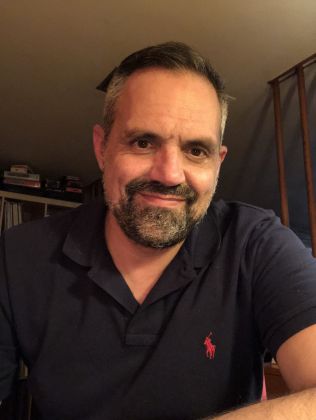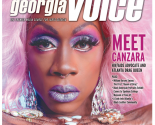
Growing LGBTQ voting blocs to impact political coverage
by Joe Siegel
LGBTQ Americans are projected to become one of the fastest growing voting blocs in the country, growing at a scale, scope, and speed that will fundamentally reshape the American electoral landscape, according to a new report from the Human Rights Campaign and Bowling Green State University.
The report offers new analysis of publicly available data and projects that by 2030 approximately one-in-seven voters will be LGBTQ, representing a sharp increase over the current one-in-10. The LGBTQ bloc is projected to continue surging in the decade following, nearing one-in-five voters by 2040, emerging as among one of the most influential voting constituencies in the country whose impact will permanently transform and reshape the American electoral landscape.
This transformation is expected to tip the scales in “red” states that are on the cusp of no longer being categorized as reliably “red,” helping to push those states into firmly “purple” territory, according to the report. In several consequential states, the proportion of LGBTQ voters will almost double between 2020 and 2040.
What impact, if any, will this have on LGBTQ media’s political and election coverage going forward?
“Politics is our hometown business, so the [Washington] Blade has always devoted a significant amount of coverage to the White House and Congress,” said Kevin Naff, the Blade’s editor. “What has changed in the last 10 years is an increased focus on state legislatures since so many attacks on LGBTQ equality are being launched in the states.”

“The most significant change in our political coverage has been that we’ve been concentrating on LGBTQ+ candidates more intensively,” said Matt Simonette, editor of the Chicago-based Windy City Times. “Ten years ago, if an LGBTQ+ candidate was running, we’d have interviewed their straight opponents, for example.”
Simonette noted the change is mainly due to the huge numbers of LGBTQ candidates running in addition to the publication’s reduced financial resources.
“Getting to the question of the growing electorate, that increase should mostly serve as a reminder that the LGBTQ+ community is not homogenous,” Simonette added. “Mainstream media’s reporting of LGBTQ+ issues is still largely limited to hot-button issues like flamboyant discrimination, threats to marriage-equality and bathroom bills. I don’t want to diminish the importance of those issues — they are huge threats — but LGBTQ+ media now has to take up the mantle of issues that are intersectional — racism, sexism, transphobia, housing instability, public safety — and more difficult for our community to speak about. That means our reporters need to hold politicians accountable for talking or not talking about those issues as we all move forward.”
“Dallas/Fort Worth has always had a very politically savvy and active community,” said Tammye Nash, managing editor of the Dallas Voice. “I am not sure that has changed much over the years, but I think as our community has become more of a target for state lawmakers we have worked to increase attention on what’s happening in Austin. We report on bills introduced in the legislature, both good and bad, and try to make sure that people know about public hearings on bills related to our community.”
The Dallas Voice also provides coverage of national races. Nash said that includes reporting on LGBTQ and allied candidates, on anti-gay politicians running for office, from city council to county offices up to state and national offices.
“Thinking way back to those times before the internet, we had to rely just on our weekly print issue of Dallas Voice to keep folks informed,” Nash noted. “Now, we can update folks every day through our blog, and of course, the internet helps us keep up with what’s happening.”
“We will continue to provide coverage of local and national politics as it concerns our readership and the LGBTQ+ community,” said A.V. Eichenbaum, editor in chief of Seattle Gay News. “The personal is political, and it’s exciting to see our community take notice and participate actively in politics as a whole. The biggest change I foresee is that, due to the ever-changing nature of the LGBTQ+ community and the growing right-wing pushback against us, the variety of things that directly affect the community politically will continue to increase. Our scope will have to increase with it.”
TOP STORY
Volume 24
Issue 11








